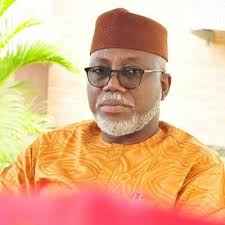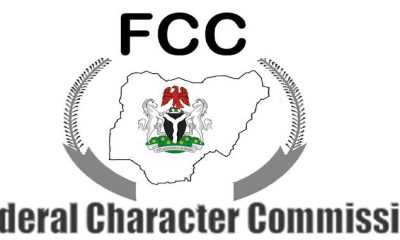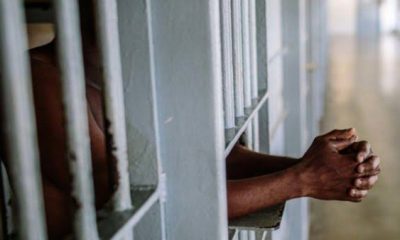News
Court removes civil service in FCC, disengaged staff suit
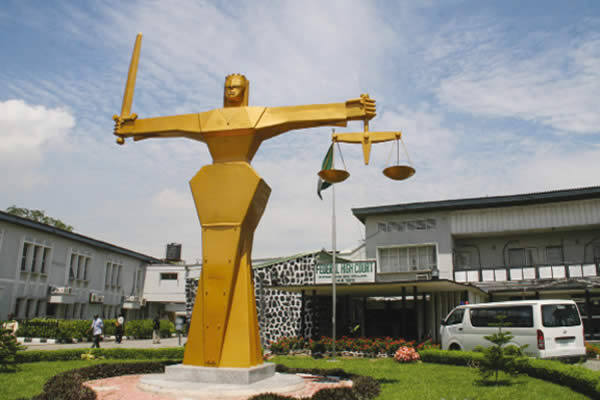
The National Industrial Court on Tuesday removed the name of Civil Service of the Federation from a suit against the Federal Character Commission (FCC), by its seven disengaged staff suit.
Justice Edith Agbakoba in the ruling stated that the civil service as the fourth defendant in the suit was not a necessary party.
The judge also ruled that the other three defendants, comprising of the commission itself and its Executive Chairman and Dr. Mubeeba Dankaka, can proceed with the adjudication of the matter without the civil service.
The court in addition submitted that though the fourth defendant is a juristic entity that can sue and be sued, that however, in the extant suit, there is no case against it.
“The fourth defendant application for its name to be struck out from this suit is granted and the first defendant’s objection to the application is dismissed.
” The fourth defendant’s name is hereby struck out from the suit and ruling ie entered accordingly.
” The matter is adjourned until Oct. 31 and Nov.1, for hearing”, Agbakoba ruled.
From facts, the claimants who alleged that they were employed by the first defendant, FCC in 2020 and their employment terminated unlawfully dragged the defendants to court praying for their termination to be set aside.
The fourth defendant however had objected being a party in the suit and applied for its name to be removed from the suit.
The claimant’s counsel, R.N Odumegwu in response had aligned for the name to be struck out, admitting that the name was erroneously included in the suit.
The first defendant, FCC in its submission objected to the fourth defendant’s application, stating that civil service was a necessary party in the suit.
FCC argued that the commission usually receives waiver for employment from civil service and therefore that made it a necessary party that ought to be in the suit.
The court in its ruling aligned with the first defendant and claimants’ submission and struck out the fourth defendant’s name from the suit.
News Agency of Nigeria ( NAN) reports that the claimants in the suit are Uzuakpundu Anita, Adebiyi Babatunde, Unogwu Elizabeth.
Others are Rahman Faosiyat, Idoko Victor, Ahmed Halimat and Awoyo Adeola.
The claimants alleged that their employment on March 30,2020, they were enrolled on Integrated Payroll and Personnel Information System ( IPPIS) in June 2020 and they received their first salary in July 2020.
In addition they averred that due to the Federal Government directive of ‘ stay at home’ for civil servants on Grade level 1-12, due to covid-19 pandemic, they remained at home when public offices reopened in Aug.2020.
They added that they were not paid for Aug.2020 and by the time they demanded to know why they did not get their salaries, they were not given justifiable reasons.
According to the claimants, they only got to know about their disengagement through a notice of disengagement published in Daily Trust newspaper on March 11,2021.
They claimed every effort for them to be reinstated proved abortive, hence their instituting the suit praying for some reliefs.
Part of the reliefs sought by the claimants are; an order of court that their employment is valid and subsisting
The claimants are also seeking for an order of court for payment of their salary aggregate.
In addition, the claimants are praying for order of court directing the defendants to reinstate them to their various offices.
The defendants in response to the claimants allegation averred that the claimants’ appointment were terminated because the acting chairman of the commission when the claimants were employed did not get the mandatory waiver and approval from Civil Service Commission before they were employed.
The defendants therefore reiterated that the claimants employment did not follow due process.
Headline
Prince Harry visits sick Nigerian soldiers in Kaduna

Prince Harry and his team visited the 44 Nigerian Army Reference Hospital in Kaduna to interact with wounded soldiers who are receiving treatment.
The Duke of Sussex is in Nigeria with his wife to champion the Invictus Games, which Harry founded to aid the rehabilitation of wounded and sick servicemembers and veterans.
Nigeria joined the Invictus Community of Nations in 2022 becoming the first African country to join.
Prince Harry’s visit to Kaduna came 68 years after his late grandmother Queen Elizabeth II visited the state during the time of the late Premier of Northern Region Sir Ahmadu Bello.




News
Senate approves death penalty for drug traffickers
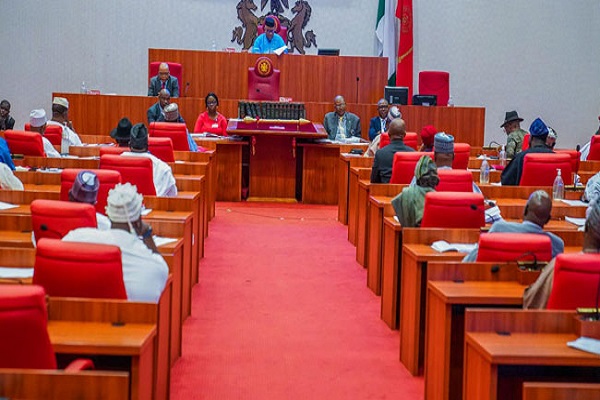
Senate on Thursday, May 9, approved the death penalty for those convicted on the charge of drug trafficking in the country.
The punishment prescribed in the extant NDLEA Act is a maximum sentence of life imprisonment.
The resolution of the Senate followed its consideration of a report of the Committees on Judiciary, Human Rights and Legal Matters and Drugs and Narcotics, National Drug Law Enforcement Agency (NDLEA) Act (Amendment) Bill, 2024.
The Chairman of the Committee on Judiciary, Human Rights & Legal Matters presented the report during plenary, Senator Mohammed Monguno (APC-Borno North).
The bill, which passed its third reading, aims to update the list of dangerous drugs, strengthen the operations of the NDLEA, review penalties, and empower the establishment of laboratories.
Section 11 of the current act prescribes that “any person who, without lawful authority; imports, manufactures, produces, processes, plants or grows the drugs popularly known as cocaine, LSD, heroin or any other similar drugs shall be guilty of an offence and liable on conviction to be sentenced to imprisonment for life” was amended to reflect a stiffer penalty of death.
Although the report did not recommend a death penalty for the offence, during consideration, Senator Ali Ndume moved that the life sentence should be upgraded to the death penalty.
During a clause-by-clause consideration of the Bill, Deputy Senate President Barau Jibrin, who presided over the session, put the amendment on the death penalty to a voice vote and ruled that the “ayes” had it.
But Senator Adams Oshiomhole objected to the ruling, saying that the “nays” had it.
He argued that matters of life and death should not be treated hurriedly, but Barau said it was too late, as he failed to call for division immediately after his ruling.
The bill was subsequently read for the third time and passed by the Senate.
-

 Headline2 days ago
Headline2 days agoSuspend cybersecurity levy– Reps to CBN
-

 Headline2 days ago
Headline2 days agoTinubu resumes work after foreign trip
-

 Business2 days ago
Business2 days agoNigeria needs over $2bn to revive Ajaokuta Steel Plant, says Minister
-

 News2 days ago
News2 days agoShan George’s money returned to Zenith Bank account
-

 Entertainment3 hours ago
Entertainment3 hours agoAMVCA Cultural Day: BBNaija’s Neo, Venita win Best Dressed Male, Female
-

 Metro3 hours ago
Metro3 hours agoEx-Sports Minister laments after hospital neglected him for hours over N80000 deposit
-

 Headline3 hours ago
Headline3 hours agoPrince Harry visits sick Nigerian soldiers in Kaduna

